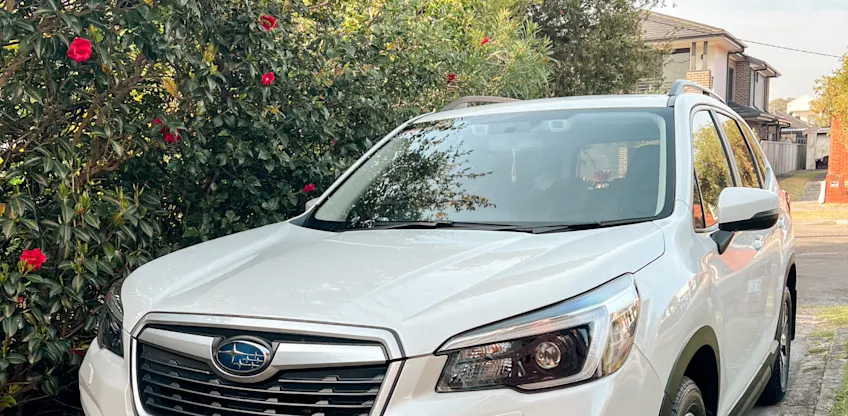
What’s the difference between torque and horsepower?
Torque vs. horsepower explained: Discover how these forces affect acceleration, towing, and top speed. Learn which matters most for your driving style at Carma.

Buying your first car and don’t know where to start? We’re here for you. Buying your first car is one of the big investments (or even the first) you’ll make in your life. It can seem daunting at the thought of all the new and used cars available from dealerships and private sellers, car insurance, cost of ownership, and the massive range of features that come with the car. We’ve put together a simple but comprehensive guide to buying your first car plus tips from Carma Director of Buying Peter Willis so you have everything you need to know before you drive off into the sunset.
Buying a car always starts with the budget. There’s a lot to choose from, including hatchbacks, SUVs, or off-roaders, and prices vary depending on the type of car you’re after. Buying a new or used car may also change what you can afford too.
“Thinking about your budget should always be your starting point to determine what you can afford from the type of car to the features that it comes with,” says Peter, “don’t forget to factor in your ongoing cost of ownership as well.” So start flexible, have a maximum price in mind and stick to it.
So what is the total cost of ownership of a car? Besides the purchase price, there are a few ongoing costs that can affect how much your car can cost. Here’s a quick breakdown:
Servicing costs: Regular maintenance is a great way to avoid unexpected and preventable repairs. Keep in mind your car’s age, make, and model can influence how much your regular services cost.
Fuel economy: Different fuel types come with different fuel costs. For example, diesel is more efficient than petrol, but can sometimes cost more than petrol. If you’re looking to keep your fuel costs low, look for a smaller car or try out hybrids.
Insurance: Compulsory third-party insurance (CTP) is required with every registered car, offering a basic third-party coverage while you’re insured. One step above that is comprehensive insurance, which covers a wider range of damage caused by insured events like accidents, theft, fire, and has your back when you cause damage to someone else’s car or property.
Car finance repayments: This one only applies if you choose to buy your car with a loan instead of cash. Your weekly or monthly repayments will include the amount you owe on the car, plus any establishment or service fees depending on your financier.
Stamp duty and registration fees: Any car in Australia has to be registered with your state or territory’s Department of Transport, and stamp duty can apply when you transfer the registration to your name. You’ll have the option of paying your registration either annually, semi-annually and sometimes quarterly.
Before you start shopping, ask yourself what you'll be using the car for. Is it primarily for daily commuting, weekend adventures, or simply the freedom to explore? If you’re planning to use it as a daily commuter around the city, you might want to check out hatchbacks or small SUVs that are easy to drive and park around town. SUVs are loved for how practical and versatile they are, and there’s plenty of choice that can take you from shopping runs to weekend off-road adventures. Thinking about what you plan to use the car for will help narrow down what you’re looking for, with factors like good fuel efficiency or boot space becoming some of your must-haves.

Parking is often overlooked in the car buying process, but this can significantly change your shopping choices. You definitely want to buy a car that can fit in your driveway after all. Things like secure garage parking or street parking in city or suburban areas can affect your size options and insurance quotes.
Car manufacturers are always improving, adding new features to their cars. From keyless entry and push button start to autonomous emergency braking, there are plenty of advanced features to choose from even if you’re buying a used car. If you’re a tech-savvy person, things like Apple Carplay or head-up displays could be for you. For music lovers, you might also want to consider the best in-car sound systems from Bose or JBL.
On the safety side, depending on your budget you’ll find options ranging from simple cruise control to advanced systems like adaptive cruise control and lane departure warning. With this many options to include in your car, it’s best to go back to your budget and think about what’s most important to you.
With all the costs and considerations to think about, you should be ready to jump right into buying your first car. Before signing on the dotted line, follow our essential tips:
With a car and parking spot in mind, you can start checking out how much insurance will cost you in the long run. If you live near crash-prone areas or you plan to park on the street, your insurance quotes may change. “Getting your quotes early can give you a clearer idea of what that total cost of ownership and your budget will look like,” advised Peter.
A quick PPSR check on your side will make sure no unwanted surprises come up after you pay for the car. “A PPSR check can help you find out whether the car still has a loan against it or has been stolen or written off so doing your own checks just ensures your purchase is solid,” says Peter, “this is something we do on every car we select so when you’re buying from Carma you get that peace of mind.”

Torque vs. horsepower explained: Discover how these forces affect acceleration, towing, and top speed. Learn which matters most for your driving style at Carma.

Learn how to detail your exterior trim like a pro. From restoring faded plastic to UV protection, follow our DIY guide for a showroom finish.

Learn how Tyre Pressure Monitoring Systems work, the difference between direct and indirect sensors, and why they are vital for safety.